Publications
Articles, publications, books, tools and multimedia features from the U.S. Institute of Peace provide the latest news, analysis, research findings, practitioner guides and reports, all related to the conflict zones and issues that are at the center of the Institute’s work to prevent and reduce violent conflict.

Music, Poetry, Film: Shoring Up Identities for Peaceful Ends
A Somali master poet reconnects citizens to their government. A Lebanese filmmaker collects fighters' stories to dramatize the cost of war. Police in Northern Ireland adopt symbols of peace to signal a new ethos. In places simmering with long-standing social tensions and alienation, common cultural understandings can help ease hostility, suggesting a potentially powerful role for a mechanism still under-used in peacebuilding: the arts.
Twitter Forum Explores Lawlessness at Sea
The unreported murder of four men in plain view, all too common on the high seas, led New York Times reporter Ian Urbina into the merciless world that resulted in his investigative series, "The Outlaw Ocean." In an event hosted by the International Network to Promote the Rule of Law (INPROL) and USIP on Aug. 18, Urbina and a panel of experts convened from three continents for a virtual forum on Twitter to discuss the issues and impact of lawlessness at sea.
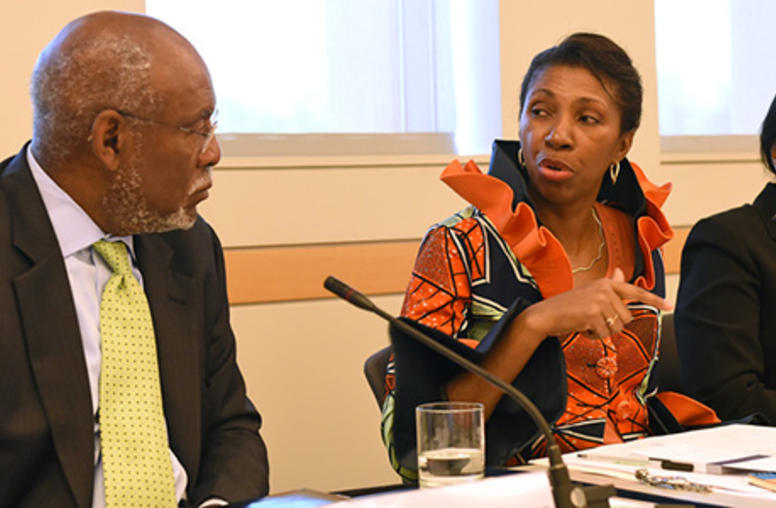
Unlearning Violence: Democratic Republic of the Congo
Martin Luther King Jr. reminds us that “Human progress is neither automatic nor inevitable…” So when we see steps toward justice and a narrative of hope returning to a country worn by violence and conflict, those of us in the peacebuilding field feel reinvigorated. We were fortunate to see an example on July 14, when the Embassy of the Democratic Republic of the Congo co-sponsored with USIP a discussion with that country’s Personal Representative of the President in Charge of the Fight Against Sexual Violence and Child Recruitment, Jeanine Mabunda Lioko Mudiayi.
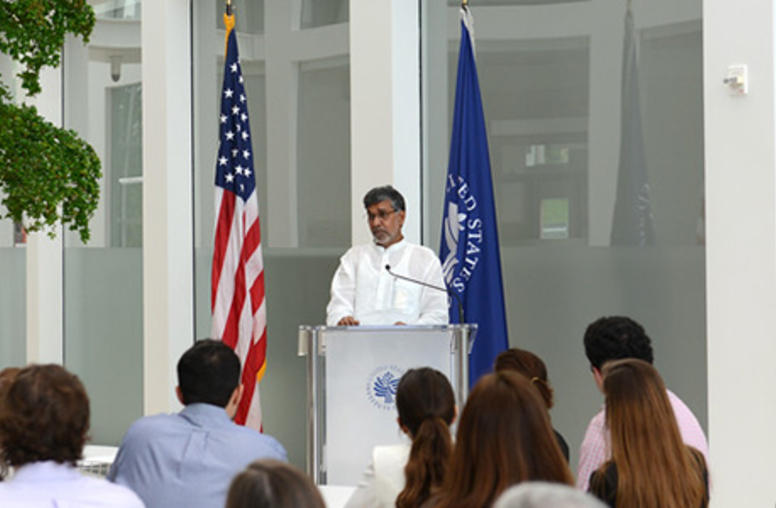
India’s Nobel Winner Takes His Fight for Children Global
Indian children’s rights campaigner Kailash Satyarthi is using his Nobel Peace Prize to build a global campaign to end child labor and enslavement. He outlined his plan at the U.S. Institute of Peace last week in his first visit to the U.S. since receiving the award.
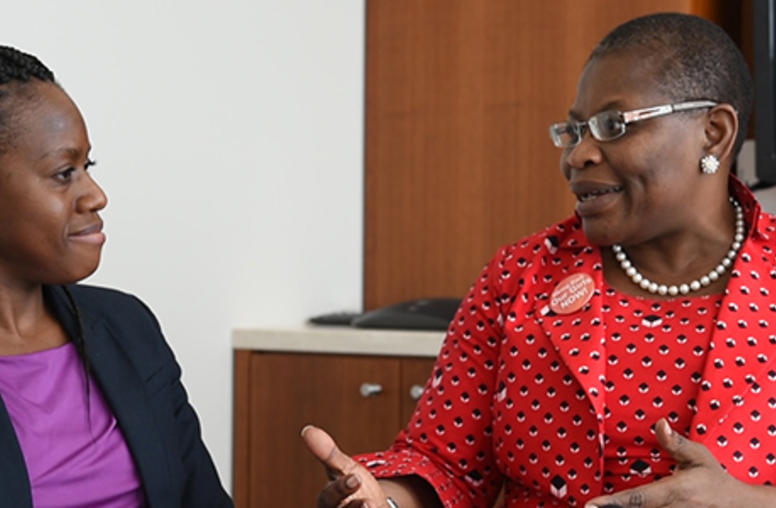
Nigeria, On Cusp of Buhari Inauguration, Finds Voice, Activist Says
As Nigeria prepares to swear in President-elect Muhammadu Buhari this week, former Cabinet Minister Obiageli Ezekwesili says the new leader will need to “stop being a candidate…and reconcile the entire country.” Nigerian citizens will no longer idly wait for their government to take action, but will demand more accountability, she said in a videotaped interview with USIP Program Officer Oge Onubogu.
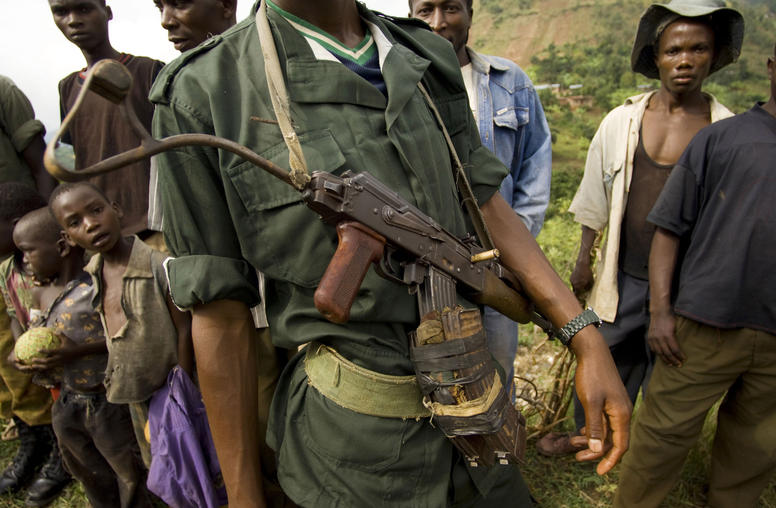
Burundi Unrest Evokes Hurdles for U.S. in Preventing Threats
The attempted coup in the tiny African country of Burundi, after weeks of unrest that has killed more than 20 people, provided immediate examples of quandaries for peacebuilding during a discussion at USIP this week: how U.S. diplomacy can emphasize prevention to counter threats, and how best to support young people to deter dangerous forms of extremism.
Diplomats, Aid Workers Must Take Risks to Reduce Conflict, New U.S. Blueprint Says
America’s new diplomatic and foreign-aid blueprint places top priority on the need to prevent and resolve violent conflict and strengthen governance in an effort to restore a measure of global stability. But to accomplish those objectives, the plan’s authors also stressed that U.S. government agencies, together with Congress, must directly accept and address the inherent risks to the civilian workers who carry out those missions.
Iraq Needs International Pressure, Unity to Stem Violence, Lawmaker Says
Iraq’s ethnic and sectarian divisions, fueled by regional competition among Iran, Saudi Arabia, Qatar and Turkey, also suggest a way toward a resolution, according to Yonadam Kanna, a member of Iraq’s parliament. It will take internal and international pressure for reconciliation and urgent assistance for rebuilding areas destroyed by the fighting, he said in a recent roundtable at USIP.
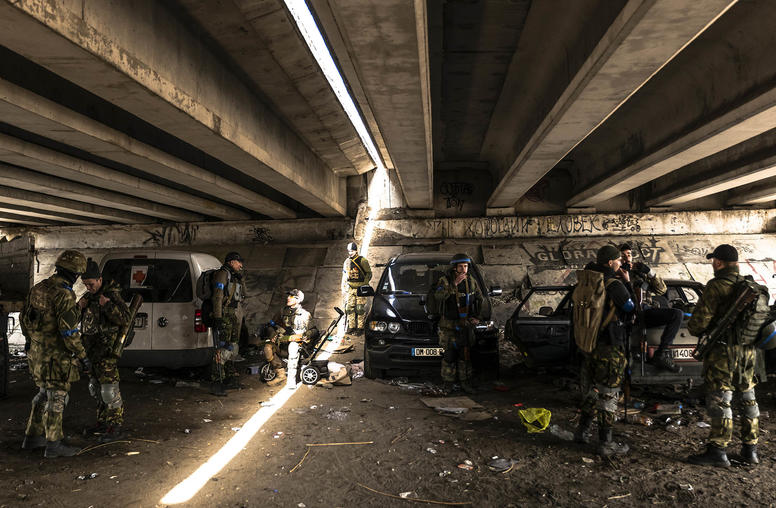
Central Asia’s New Foreign Fighters Problem: The Russia-Ukraine War
Since the start of the current conflict in Ukraine, there have been growing glimpses coming through media reports, social media feeds and personal networks of Central Asian mercenaries and volunteers fighting on both sides of the Russia-Ukraine war. But the emergence of this new foreign fighter phenomenon — less than a decade after thousands of Central Asians joined ISIS in Iraq and Syria — is raising increasing concerns and important questions for Central Asian security. Unlike the phenomenon of Central Asians fighting in Iraq and Syria, the cleavages in Ukraine are much closer to home and echo those in Central Asian society, which makes this mobilization much more divisive internally.
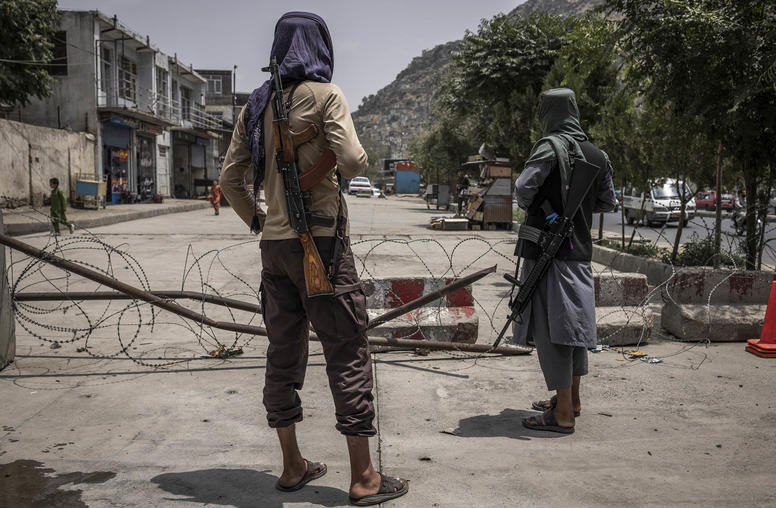
Two Years Under the Taliban: Is Afghanistan a Terrorist Safe Haven Once Again?
Two years into Taliban rule, the question of whether Afghanistan would once again become a safe haven for international terrorism remains alive. Longstanding fears were affirmed a little over a year ago, when the U.S. government located al-Qaeda leader Aimen al-Zawahiri in Kabul, Afghanistan, before killing him in a drone strike. The fact that the Taliban would bring Zawahiri back to Kabul, despite repeated assurances to U.S. negotiators both before and after the Doha agreement that they had distanced themselves from al-Qaeda, significantly elevated concerns.